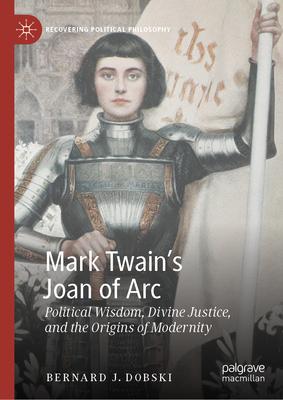This book is about the political wisdom embodied in Personal Recollections of Joan of Arc by Mark Twain, the self-declared best book by arguably America's greatest author. More precisely, this study illuminates Twain's political wisdom by examining his approach to the theological-political problem; it takes up Twain's handling of the question of whether a providential deity intervenes in human affairs so as to effectuate divine justice on earth and it does this through a commentary on his last complete novel. Through this investigation, Twain prompts his audience to explore the natural, conventional, or divine basis for justice in political life. Such a study is critical for understanding Twain's corpus, concerned as it is with the tension between material determinism and moral agency. Dobski argues that Twain's last novel prepares his readers to adopt a "new" understanding of man and his relationship to God, his country, and his fellow man.

Mark Twain's Joan of Arc: Political Wisdom, Divine Justice, and the Origins of Modernity
This book is about the political wisdom embodied in Personal Recollections of Joan of Arc by Mark Twain, the self-declared best book by arguably America's greatest author. More precisely, this study illuminates Twain's political wisdom by examining his approach to the theological-political problem; it takes up Twain's handling of the question of whether a providential deity intervenes in human affairs so as to effectuate divine justice on earth and it does this through a commentary on his last complete novel. Through this investigation, Twain prompts his audience to explore the natural, conventional, or divine basis for justice in political life. Such a study is critical for understanding Twain's corpus, concerned as it is with the tension between material determinism and moral agency. Dobski argues that Twain's last novel prepares his readers to adopt a "new" understanding of man and his relationship to God, his country, and his fellow man.